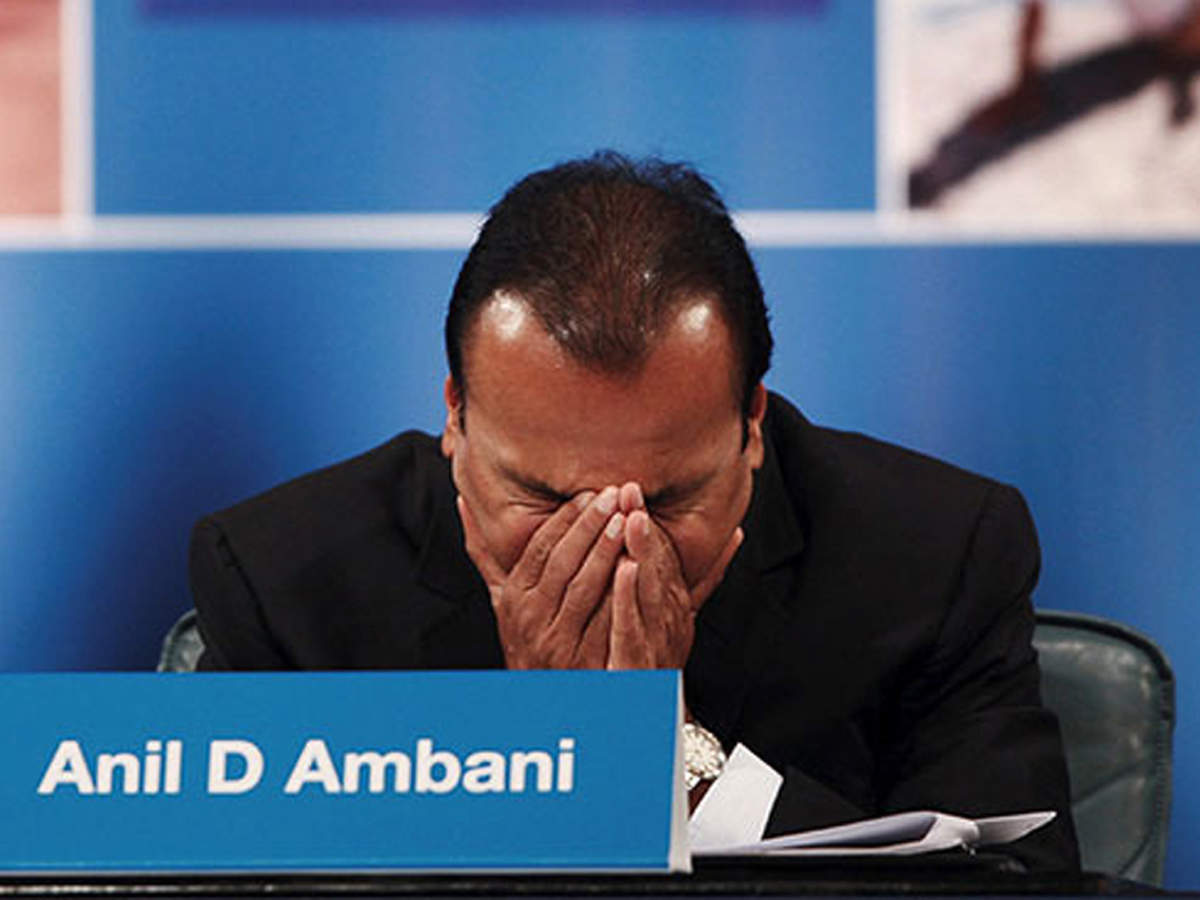Chinese banks write to FM, requesting the bankruptcy process for Reliance Infratel be expedited which began in 2018

Chinese banks write to FM, have asked India to speed up the bankruptcy process for Reliance Infratel.
With total exposure of Rs 13,483 crore in insolvent Reliance Infratel, China Development Bank, Export-Import Bank of China, and SC Lowy Asset Management have appealed to the Indian government to speed up the company’s debt resolution procedure, which began in May 2018.
The lenders voiced their worry in a letter to the Indian finance minister and the Insolvency and Bankruptcy Board of India (IBBI) that, despite the strict timeframes set forth under the Insolvency and Bankruptcy Code,,, 2016, Reliance Infratel’s debt resolution is still far from complete.
Three lenders have a total exposure of Rs 13,483 crore in the insolvent business, and they are concerned that, despite the IBC’s strict timelines, debt resolution is still a long way off.
Chinese banks have asked the FM to intervene in Reliance Infratel’s restructuring plan. Chinese banks have written to Finance Minister Nirmala Sitharaman over the delays in implementing the Reliance Infratel Limited Resolution Plan.
The China Development Bank has written to Finance Minister, urging her to guarantee that a Reliance Jio subsidiary pays and implements the debt settlement procedure for Reliance Infratel Ltd (RITL), which the bankruptcy panel authorized in December 2020.
The resolution plan, which includes Jio buying RITL for over Rs 4,000 crore, has been put on hold after the telecom firm discovered that a number of institutions, including the State Bank of India, had flagged RTIL as a fake account but had not informed the NCLT or Jio.

In their respective capacity as financial creditors of Reliance Infratel Limited (RITL), China Development Bank, Export-Import Bank of China, Shubh Holdings Pte. Ltd., and SC Lowy Asset Management have written to the finance minister and IBBI Chairman.
Out of RITL’s total financial debt of Rs 41,055 crore, these banks have an aggregate financial liability of Rs 13,483 crore.
Four financial institutions, including two Chinese banks, have written to finance minister Nirmala Sitharaman and the Insolvency and Bankruptcy Board of India (IBBI), requesting their assistance in hastening the resolution of Reliance Infratel (RITL), Reliance Communications’ tower unit.
“We wish to bring to your attention a deeply concerning roadblock in the successful resolution applicant – Reliance Projects & Property Management Services Limited (RPPMSL) (formerly known as Reliance Digital Platform & Project Services Limited), an affiliate of Reliance Jio Infocomm Limited (RJio) – implementing the resolution plan for RITL,” the letter said.
We also request that the MCA and the IBBI consider instituting appropriate legislative amendments to the Code to disincentivize successful resolution applicants from withdrawing or modifying resolution plans (once submitted as part of the CIRP) or delaying or withholding the implementation of the National Company Law Tribunal (NCLT)-approved resolution plans, given this roadblock and the instances of successful resolution applicants reneging on resolution plans,” the banks stated.
According to the Chinese lender’s letter dated January 25, the categorization of the account as fraudulent is an internal matter for Indian institutions. “This should not hinder RITL’s corporate insolvency resolution process (CIRP) or the implementation of an NCLT authorized resolution plan,” the letter said, which ET obtained a copy of.
The letter’s signatories include the China Development Bank, the Export-Import Bank of China, Shubh Holdings Pte, and SC Lowy Asset Management.
These institutions have encouraged the ministry of corporate affairs and the IBBI to explore suitable legislative adjustments to the Insolvency and Bankruptcy Code (IBC) so that successful resolution applicants are disincentivized from abandoning or changing their resolution plans.

According to the banks, the NCLT has already accepted the RPPMSL Resolution Plan under the current scenario. As a result, RPPMSL is prohibited from changing or withdrawing the RPPMSL Resolution Plan in any way or for any reason (including, on account of the Forensic Audit Report).
Furthermore, because the RPPMSL Resolution Plan will result in a change in RITL’s management or control, there is no possibility (if any) of RPPMSL being held accountable for RITL’s actions prior to the CIRP’s start.
As a result, RPPMSL should be forced to immediately execute the RPPMSL Resolution Plan. This would not only respect the CIRP’s integrity as envisioned by the Code, but it will also assure faster recovery for creditors who have been waiting for RITL’s resolution for the past two years.
The banks have asked the MCA and the IBBI to intervene in the RPPMSL application as soon as possible and to ask the NCLT to order the RPPMSL Resolution Plan to be implemented immediately.
“As RITL’s financial creditors and stakeholders who have been waiting for the RITL to be resolved since 2018, we urgently request your intervention in the RITL CIRP (where a clear NCLT approved resolution plan exists),” the banks said.
These organizations have urged the ministry of corporate affairs and the IBBI to look into making appropriate legislative changes to the Insolvency and Bankruptcy Code (IBC) to discourage successful resolution applicants from abandoning or modifying their resolution plans.
Reliance Projects and Properties Management Services, an offshoot of Mukesh Ambani’s Reliance Jio Infocomm, got the mandate to take over RITL’s assets for Rs 4,400 crore according to these organizations but has yet to put the resolution plan into action.
“This is allegedly due to the fact that it was not given with a copy of the forensic audit report.” Reliance Projects, on the other hand, has full access to RITL’s towers at a much-reduced cost. “As a result of this usage, RITL’s committee of creditors (CoC) continues to incur losses of Rs 30-40 crore each month for the upkeep of these towers,” the letter stated.
After Reliance Communications (RCom), then owned by Anil Ambani, failed to pay dues of Rs 46,000 crore, Indian lenders sent the company and its subsidiaries (RITL and Reliance Telecom) to the National Company Law Tribunal (NCLT) in May 2018.
While UVARC was the winner of the RCom acquisition process in March 2020, Reliance Projects was the winner of the RITL acquisition process.
The Chinese bank has also requested legal changes to prevent future delays in debt settlement processes.

After a forensic assessment, the State Bank of India, Union Bank of India, and Indian Overseas Bank designated RITL as a “fraud account” in November 2020, and the process came to a halt.
Reliance Projects petitioned NCLT in May 2021, requesting that it direct RITL lenders to reveal the forensic audit.
According to the petition, the decision to declare the accounts fake was not made public before the NCLT. The banks then removed the fraudulent designation, but Reliance Projects was not given a copy of the report.
The foreign companies want the finance ministry and the bankruptcy board to ask the NCLT to order Reliance Projects to complete the resolution procedure “immediately.”
There is no legal basis for Reliance Projects to continue to delay the resolution plan’s execution.”
In support of their request, the Chinese banks stated in the letter that Reliance Projects -would acquire RITL on a “clean slate basis” (i.e., they will not be accountable for previous offenses), and the Indian banks have affirmed that the fraud tag will be removed if the resolution plan is completed.
The assets of RITL, RCom, and Reliance Telecom have been depreciated “substantially” during the last three years (from the commencement of the asset monetization process in 2017-18). It stated that additional delays in implementing the resolution plan (which was authorized by NCLT) would jeopardize all creditors’ recovery.
The NCLT has not heard Reliance Projects’ plea beyond June 10, 2021, while the case is ongoing before the tribunal, according to the businesses.

In December 2020, the NCLT accepted the resolution plan offered by Reliance Property and Project Management Services Ltd (RPPMSL), a Jio subsidiary.
SBI, Indian Overseas Bank, and Union Bank of India had designated RITL as a fraud account a month previous to its permission. While the resolution application was being reviewed by the NCLT, they did not tell it of this.
When the incident became public, the Jio affiliate requested information from SBI, noting that it wanted to determine if the Indian banks’ ‘fraud categorization’ would result in a major adverse effect as stipulated under the resolution plan.
Soon after, SBI told the NCLT that after the resolution plan was followed, the ‘fraud’ tag on RITL would be removed and that the classification would not harm RPPMSL or its directors.
The Chinese bank has claimed that there has been no progress in the matter since June of last year and that RPPMSL has continued to benefit from RITL’s cheap towers. According to the bank, RITL’s panel of creditors continued to lose Rs 30-40 crore every month as a result of this agreement.
The letter highlighted a previous Supreme Court decision in a similar case involving Ebix Singapore and Educomp Solutions’ creditors, in which the top court decided that once a panel of lenders has authorized a resolution plan, the resolution applicant cannot withdraw or change it.




